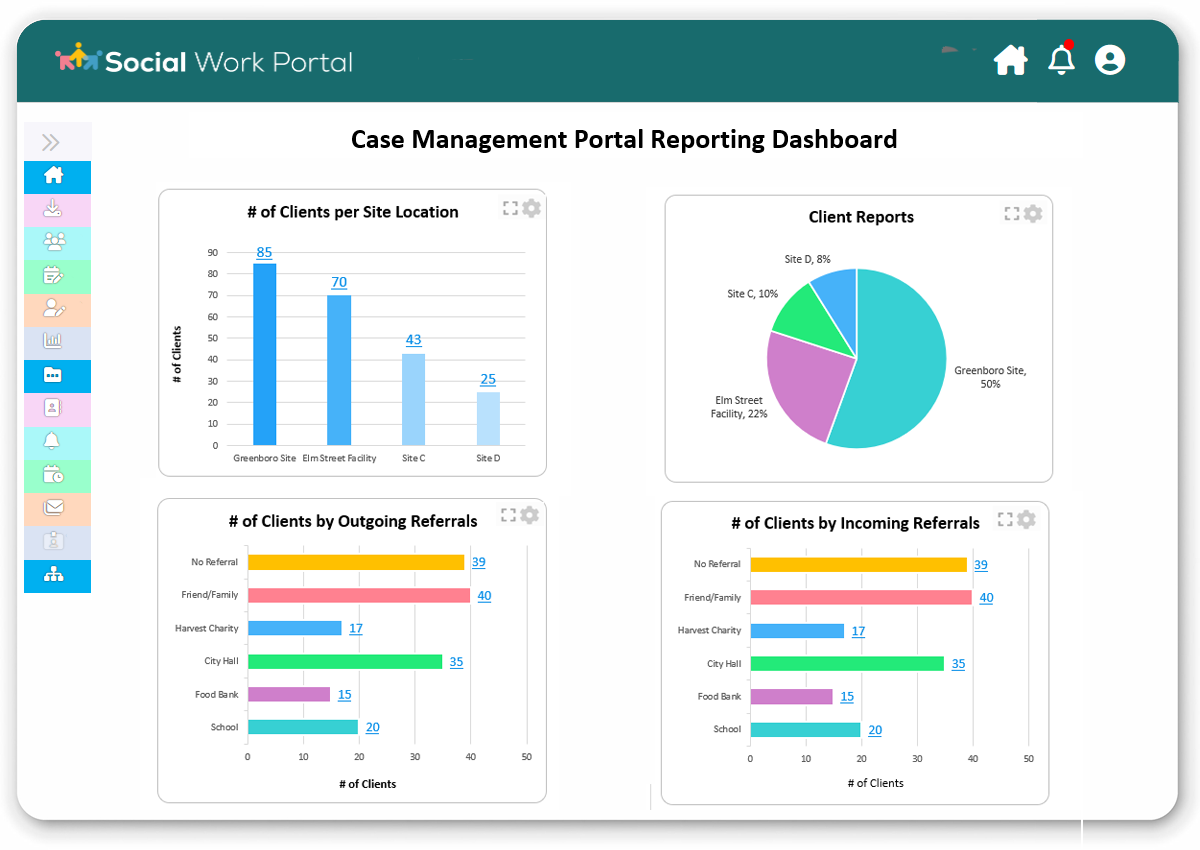Proven Methods for Nonprofit Management Success
The nonprofit sector is a driving force for positive change across the globe. But being fueled by passion alone isn’t enough. Effective nonprofit management requires a unique blend of skills, strategies, and dedication. Running a nonprofit organization isn’t just about doing good—it’s about doing good effectively.

Whether you’re a seasoned professional or just starting your journey in non-profit management, this blog post equips you with actionable strategies to navigate the complexities of how to run a successful nonprofit organization.
Watch a summary below:
Story Highlights
|
Understanding the Nonprofit Landscape
While there are some similarities, Nonprofit management differs from the corporate world in several key aspects:
- Mission-Driven Focus: Nonprofits prioritize social impact over profit generation. Every decision and action should align with the organization’s mission of creating positive change.
- Resource Constraints: Nonprofits often operate with limited resources, requiring them to be incredibly resourceful and efficient in their operations.
- Stakeholder Management: Nonprofits manage relationships with a diverse range of stakeholders, including donors, volunteers, beneficiaries, and the community at large.
Successful non-profit management requires a deep understanding of these unique aspects and the ability to navigate them effectively.
Essential Skills for Those in a Nonprofit Management Career
So, what skills make a successful nonprofit manager? Here are some key areas to focus on when looking for insights on how to manage a nonprofit organization:
- Strategic Planning: Develop a clear vision for your not-for-profit organization and translate it into actionable strategies.
- Financial Management: Effectively manage budgets, track expenses, and ensure financial sustainability.
- Fundraising: Develop and implement successful fundraising strategies to secure resources that fuel your mission.
- Program Management: Oversee the effective implementation of programs that deliver measurable results.
- Human Resource Management: Recruit, train, and motivate staff and volunteers to maximize their contributions.
- Leadership & Communication: Provide inspiring leadership, build strong relationships, and effectively communicate your organization’s mission to stakeholders.
- Advocacy: Raise awareness about your cause and influence policy change to create a lasting impact.
These skills are fundamental in the “handbook” for how to run a successful nonprofit organization. Consider investing in charity management courses or pursuing professional development opportunities to hone your leadership abilities and non-profit management expertise.
Do you have any questions about how to manage a nonprofit organization or finding charity management courses? Please reach out and let us know!
Building a Strong Team: Staff, Volunteers, and Board Collaboration
A nonprofit organization is only as strong as the team behind it. Leadership has to know how to manage volunteers in a non-profit, as well as staff and board members. Here’s how to cultivate a dedicated and productive team environment.
How to Manage a Nonprofit Staff
Building a strong and motivated staff is essential for any nonprofit organization’s success. Here’s how to cultivate a thriving work environment:
- Recruitment & Retention: Go beyond traditional hiring practices. Seek diverse candidates who align with your mission. Invest in staff development, provide competitive benefits, and foster a culture of appreciation and recognition. This not only attracts top talent but also encourages them to stay and contribute their skills long-term.
- Empowerment & Communication: Empower your staff by delegating tasks, providing clear expectations, and encouraging ownership of projects. Maintain open communication channels, encourage feedback, and create a safe space for staff to voice concerns or suggest improvements. This collaborative approach fosters a sense of purpose and motivates your team to go the extra mile.
How to Manage Volunteers in a Non-Profit
Volunteers are the backbone of many nonprofits. Effective volunteer management ensures they feel valued and their contributions make a real difference.
- Recruitment & Matching: Develop a clear strategy to recruit volunteers with the skills and interests aligned with your organization’s needs. Utilize online platforms and create engaging volunteer opportunities. Implement a robust matching system to connect volunteers with the right roles based on their skills and preferences.
- Training & Recognition: Provide comprehensive training programs to equip volunteers with the knowledge and skills they need to succeed in their roles. Regularly recognize and appreciate volunteers’ contributions through public acknowledgments, awards, and opportunities for leadership development. This fosters a sense of belonging, motivates continued engagement, and helps retain your valuable volunteer force.
How to Manage a Nonprofit Board
A strong board of directors provides crucial guidance and oversight for a nonprofit organization. Here’s how to cultivate a productive board partnership:
- Recruitment & Governance: Recruit board members with diverse skills and experiences who are passionate about your mission. Ensure a clear understanding of board member roles and responsibilities. Develop and adhere to good governance practices to ensure transparency and ethical decision-making.
- Communication & Collaboration: Maintain regular communication with board members between meetings. Provide clear information about the organization’s work, financial performance, and upcoming opportunities. Foster open communication and collaboration between board members and staff, allowing for shared decision-making and a unified vision for the organization’s future.
Financial Management: Stretching Every Dollar
Financial responsibility is paramount in how to manage a charity, NGO, or nonprofit. Here are some key strategies:
- Develop a Comprehensive Budget: Create a realistic budget that outlines your income sources, program expenses, and operational costs.
- Diversify Your Funding Streams: Don’t rely solely on one source of income. Explore grants, fundraising initiatives, and earned income opportunities.
- Track Expenses & Financial Analysis: Monitor expenses diligently and conduct regular financial analyses to identify areas for cost-saving and resource optimization.
- Financial Transparency: Maintain financial transparency and provide clear reports to donors, funders, and stakeholders. Trustworthiness is key to securing continued support.
Remember, being in a nonprofit management career isn’t just about raising money; it’s about using every dollar effectively to maximize your organization’s impact.
Please let us know if you have any questions or feedback about how to manage volunteers in a non-profit or how to manage a nonprofit board. We’d love to hear from you!
Measuring Success: Beyond the Bottom Line
Nonprofit success extends beyond financial metrics. Nonprofit and charity management courses will teach you other ways funders and others evaluate nonprofit success. Here’s how to measure your organization’s impact:
- Program Evaluation: Track and measure the effectiveness of your programs to ensure they are making a tangible difference.
- Beneficiary Impact Stories: Share compelling stories of how your organization is helping individuals and communities. This connects with donors on an emotional level.
- Key Performance Indicators (KPIs): Develop nonprofit key performance indicators (KPIs) aligned with your mission to track progress and demonstrate the impact of your work.
By focusing on these metrics, you can demonstrate the value your nonprofit brings to the community and secure continued support from donors and funders.
The Road to Non-profit Management Success: Navigating Challenges and Embracing Change
The nonprofit management journey isn’t always smooth sailing. Here are some common challenges you might encounter and strategies to overcome them:
- Limited Resources: Fundraising can be a constant challenge. Be creative, explore diverse funding streams, and focus on demonstrating the return on investment (ROI) for your donors.
- Staff Burnout: Nonprofit work can be demanding. Prioritize staff well-being, offer competitive benefits, and foster a work-life balance for your team.
- Board Management Issues: Disagreements within the board can hinder progress. Foster open communication, ensure clear roles and expectations, and value diverse perspectives.
- Measuring Impact: Demonstrating the impact of your work can be complex. Develop a comprehensive evaluation plan and focus on storytelling to showcase the positive change you create.
- Staying Relevant & Adapting to Change: The social sector is constantly evolving. Be open to change, embrace innovation, and stay informed about current trends affecting your cause area.
Challenges are opportunities for growth. By remaining adaptable and learning from your experiences, you can navigate these obstacles and propel your organization toward long-term success.
Please let us know if you’d like to know more about how to manage a charity or where to find tips on a nonprofit management career. We’ll be happy to help!
How to Manage a Nonprofit Organization and Make a Difference Every Day
Non-profit management is a demanding yet incredibly rewarding career path. You get to witness the positive impact your organization has on people’s lives and contribute to building a better world.
Are you looking for charity management courses or resources to support your nonprofit management career? Here are some resources to support you on your journey:
- Nonprofit Leadership Alliance: https://nla1.org/
- NonprofitReady.org: https://www.nonprofitready.org/nonprofit-leadership-courses
- Duke University: https://learnmore.duke.edu/nonprofit/executiveleadership
These resources offer valuable training opportunities, expert advice, and networking connections to help you excel in the field of nonprofit management. With dedication, effective strategies, and a commitment to continuous learning, you can become a successful nonprofit manager and make a lasting difference in the world.
Simple Nonprofit Case Management Software
One factor in how to run a successful nonprofit organization in the 21st century is choosing the right technology to support your work. Case Management Hub is a simple, yet robust case management platform that gives you a secure place to manage client data, case notes, intakes, and more.
From nonprofit KPI reporting for stakeholders to day-to-day case management, you’ll find this one of the best platforms out there to support your mission.
Learn more & get your free trial now.
FAQ: Strategies for Leaders in a Nonprofit Management Career
How does non-profit management differ from for-profit company management?
Nonprofit management differs from the corporate world in several key aspects.
First, nonprofits prioritize social impact over profit generation.
Second, nonprofits often operate with limited resources, requiring them to be incredibly resourceful and efficient in their operations.
Third, nonprofits manage relationships with a diverse range of stakeholders, including donors, volunteers, beneficiaries, and the community at large.
What are some essential skills for those wanting to know how to run a successful nonprofit organization?
Here are some important skills needed by those in a nonprofit management career: Strategic Planning, Financial Management, Fundraising, Program Management, Human Resource Management, Leadership & Communication, and Advocacy.
What are three ways, beyond the bottom line, to measure non-profit management success?
Some ways that nonprofit managers can illustrate the success of their organization is through program evaluation, beneficiary impact stories, and key performance indicators (KPIs).
Note: Content on this website (socialworkportal.com) is copyrighted and protected under applicable copyright laws. Unauthorized reproduction, distribution, or use of any content from the website, without explicit written permission, is strictly prohibited. Read: Terms of Use.
Social Work Portal Disclaimer: Social Work Portal is not a social work agency and we do not refer social workers. This web site is provided for educational and informational purposes only and does not constitute providing medical advice or professional social and healthcare services. The information provided should not be used for diagnosing or treating a health problem or disease, and those seeking personal medical advice should consult with ... Read our full disclaimer here: Social Work Portal Disclaimer.

Image sources: Stock.adobe.com





